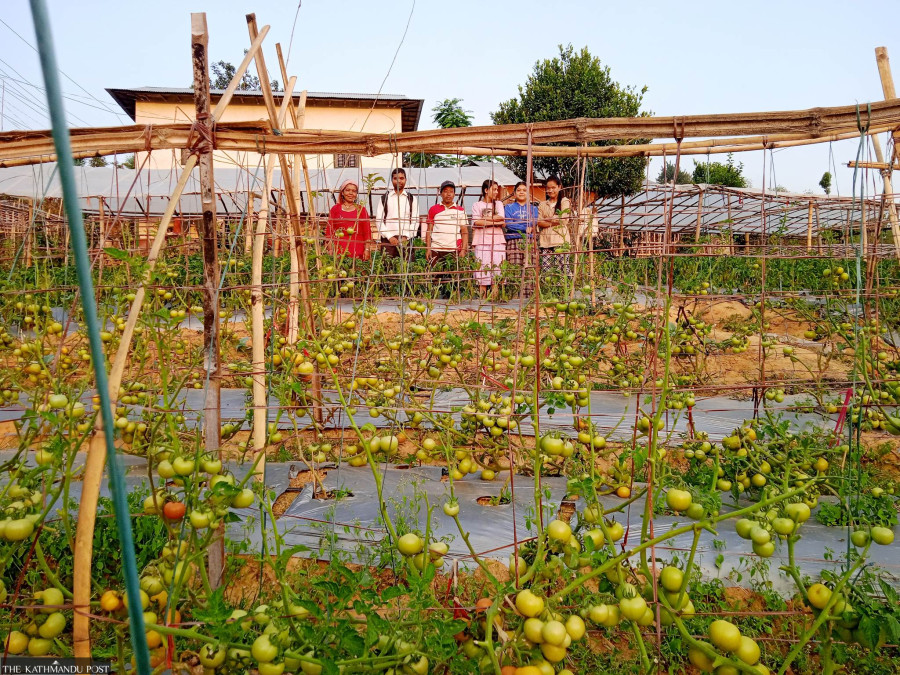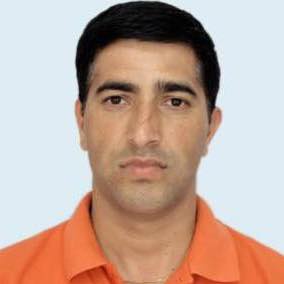Money
Farm subsidies ending up in wrong hands, report says
The probe panel said that more than 70 percent of the subsidies in Lumbini province had been misappropriated.
Ghanashyam Gautam
More than 70 percent of the farm subsidies in Lumbini province were found to have been siphoned off by politically connected individuals, according to a report.
The Ministry of Agriculture and Land Management in Lumbini had allocated subsidies totalling Rs500 million for the agriculture and livestock sector in the fiscal year 2018-19. Out of that amount, only Rs399 million reached the farmers.
The ministry had also earmarked Rs400 million for agriculture mechanisation, but only Rs333.8 million went where it was supposed to.
Following widespread complaints, the Lumbini provincial government formed a probe committee in October 2019, suspecting the agriculture and land management minister, members of the Provincial Assembly and bureaucrats of committing embezzlement.
The probe panel said that more than 70 percent of the subsidies had been misappropriated.
Kamal Raj Shrestha, then member of the Lumbini Provincial Assembly, headed the committee which submitted its report in December 2019.
According to the report, the ministry provided Rs3.55 million to Rolpa Municipality to buy a 3,000-litre milk tanker.
All well and good, but the district does not produce more than 200 litres of milk daily, said Surendra Gharti, the incumbent mayor of Rolpa Municipality.
“The tanker has not been used for anything till today,” said Gharti.
The probe committee also concluded that the ministry had distributed funds to purchase farm equipment benefiting certain people without doing any study.
In addition to giving money to buy the milk tanker, the ministry had provided funds to the municipality to buy a pick-up van, milk chilling vat, pallet-making machine, hatchery machine, mini tiller and other equipment.
Purna KC, former mayor of Rolpa Municipality, explained that the subsidy had been provided to increase milk production in the district. Towards that end, they had planned to purchase buffaloes.
“But the programme failed,” said KC.
Former mayor KC is well-connected to Maoist leaders. He is married to the sister of Krishna Bahadur Mahara.
Former deputy mayor Man Kumari Gharti is the younger sister of Barsha Man Pun, another Maoist leader.
According to a government official who had served in the Ministry of Agriculture and Land Management in the fiscal year 2018-19, the provincial government had provided the subsidy to Rolpa Municipality under pressure from the two Maoist leaders.
“The milk tanker has not been used for the last four years. It will be used from the next fiscal year,” said Gharti, the current mayor.
“The municipality has planned to buy cattle by allocating Rs4 million in the current fiscal year to increase milk production to 3,000 litres from next year. After milk production is increased, the tanker will be brought into operation,” he added.
The ministry had also given a tanker of the same capacity and cost to Ishwar Dairy of Gulmi. This tanker has been sitting idle in a garage in Rurukshetra Rural Municipality, Baletaksar for the last three years.
Trader Narjan Shrestha, who received the tanker, said they had not been able to make use of the vehicle because of the Covid-19 pandemic.
“Right after the tanker was handed over to us, the pandemic started and milk production dropped,” said Shrestha.
“The tanker is now sitting idle, but we are planning to put it to use after the Dashain and Tihar festivals.”
Shrestha claims that the district produces 1,000 litres of milk daily. “We are planning to collect milk from local farmers and send it to Pokhara.”
The Commission for the Investigation of Abuse of Authority (CIAA) is also investigating the matter after discovering that the ministry had paid Rs3.5 million for a tanker whose market price is Rs2.7 million.
The ministry had also distributed Rs100 million to 184 farmers in the name of food and nutrition security, business-oriented agriculture, innovative technology programmes and commercial agriculture.
The anti-graft body said that the subsidies had been misappropriated.
Hariyali Livestock and Agriculture Farm of Pyuthan Municipality-2 received Rs400,000 in financial aid from the ministry in the fiscal year 2018-19.
Bikram Bista, the proprietor of the farm, is a younger brother of Bijara Birat Bista, an influential leader of the CPN-UML in Pyuthan.
The farm received subsidies for pig farming, but there are no pigs on the farm. Bista later transformed the farm into Jun Tara Cottage and Resort.
Now he has shut down the resort, and runs a crusher plant on the banks of the Jhimruk River.
“I had purchased four piglets with the subsidy. But my project did not succeed,” said Bista.
“The government did not continue the subsidy after the first year. So I decided to open Pyuthan Aggregate Crusher to utilise the 40 ropanis of land leased to run the agro farm.”
In 2018-19, the provincial government started the Smart Agriculture scheme to expand climate-resilient farming, double the income of farmers, and increase employment in rural areas and sustainable food security.
The scheme aimed to make agricultural products market-oriented, commercial and self-reliant.
A group needs to have farms with a minimum size of 50 ropanis in the hills and 50 bighas in the Tarai to qualify for subsidies.
Yubraj Dhakal, information officer of the Ministry of Agriculture and Land Management, said that each household needs to have five lactating cattle or 200 cattle in the group and 10 goats or sheep in each house or 500 in each group.
“The scheme has a provision to enrol at least 50 farmer households in each smart agriculture group eligible to receive subsidies,” said Dhakal.
The programme was gradually implemented in all 109 local units of the province within three years of its announcement.
Pushkar Poudel from Panini Rural Municipality-6 in Arghakhanchi had been working in Qatar as a migrant worker for seven years.
When local farmers told him about the Smart Agriculture scheme launched by the provincial government and the subsidy they get under it, he returned and set up the Siddheshwar Smart Agriculture Group by including 90 local farmers in the fiscal year 2019-20.
The government provided his group with a subsidy of Rs5 million in the first year.
The farmers also produced agricultural products worth Rs2.7 million and Poudel collected their products and sold them in the market.
“But the government decreased its support from the second year, and the farmers too gradually gave up farming,” said Poudel. “Now, we have discontinued the programme.”
The ministry cut off the subsidy provided for the smart agriculture groups by 25 percent in the second year, 50 percent in the third year and 75 percent in the fourth year.
Ministry sources said the scheme failed because the subsidies were allocated to politically connected people, not genuine farmers.
“The Smart Agriculture scheme is now operating in only 37 local units. Most of the farmers are on the verge of quitting the scheme as well,” said Dhakal.




 9.6°C Kathmandu
9.6°C Kathmandu















